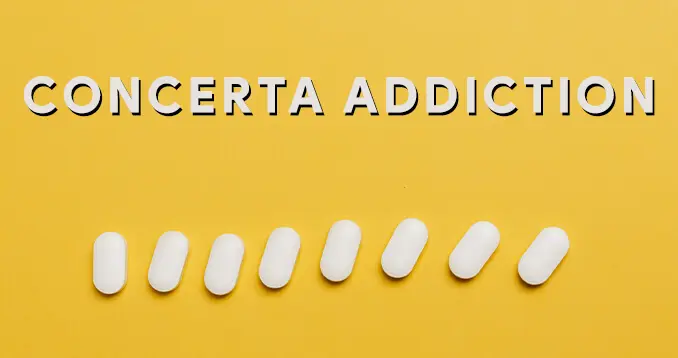Concerta Addiction
Concerta is meant to be the medication drug for Attention Deficit Hyperactivity Disorder (ADHD). But unfortunately, it’s being used by many, mostly students. Initially, it is used for sharpening the brains, but eventually, they become addicted to it. Prevention of Concerta addiction is a joint responsibility of the medical staff, the parents of the addict, and the addict himself. The consequences are very severe when the drug is sniffed and snorted; this issue needs to be adequately addressed. Concerta addiction is the same as any other drug addiction. When you take the drug for prolonged periods, your body will become addicted to it, and you will experience certain signs of physical and psychological changes, making you dependent on it. Concerta can affect the addict’s body in many physical and psychological ways. The user loses his weight, can have severe mood swings and may feel paranoid. Due to paranoia, the brain is unable to stop functioning, and this leads to sleeplessness. The chemical makeup in the brain is compromised with this drug, the receptors are continually sending out messages, and the brain has a difficult time regulating.
Concerta Side Effects
Side effects of Concerta vary from person to person, depending upon the usage. Abuse of Concerta can cause various psychiatric, motor, anxiety, and behavioral symptoms. Some of the major symptoms include;
- Insomnia
- Stomach pains
- Nausea
- Headache
- Anxiety
- Irritability
- Decreased hunger
- Weight loss
- Hallucinations
- Delusions
- Paranoia
- Confusion
- Disorientation
- Schizophrenic symptoms
- Psychosis
- Depression
- Seizures
- Stereotypic confusion
- Increased blood pressure
- Increased heart rate
- Obsessive-compulsive tendencies
- Aggressiveness
- Repetitive behaviors
- Mood swings
Concerta Withdrawal Symptoms
Withdrawal symptoms are the symptoms that the patient experiences during or after drug detoxification. The patient begins to experience these symptoms when the amount of drug is gradually reduced from his system. Drug withdrawal side effects can result in a wide range of psychological and physical symptoms. The duration and severity of these symptoms depends upon the following factors:
- Physical health of the user.
- Mental health of the user.
- The period for which the patient has been abusing the substance.
- The drug consumption quantity.
The main Concerta withdrawal symptoms include; excessive sleepiness, irritability, nausea, headache, increased hunger, increased stress, decreased heart rate, anxiety, hallucinations, depression, lack of focus, and fatigue.
Concerta Treatment
Individuals who are Concerta addicts often require some form of professional intervention to recover. One should consult his physician or doctor so that he can get proper guidance regarding their situation. The physician can also provide recommendations regarding treatment programs. The most common types of treatment include; drug detox, inpatient and outpatient treatment, and behavioral therapy.
Drug Detox
Drug detox is considered as the first step in drug treatment. It is a medical process that includes the removal of Concerta from the body. Concerta addiction in people causes them to become physically dependent on the drug. The drug detox helps them to reduce or eliminate this dependency.


Get The Treatment You Need and Deserve
Elevate Recovery Center stands at the forefront of addiction treatment, demonstrating a track record of effectively supporting long-term recovery. Our dedicated team of renowned clinical and medical professionals excels in addressing addiction, often in conjunction with mental health concerns, to provide personalized care for each individual in our program. Call us – we’re available 24/day, 7 days/week.
Inpatient and Outpatient Treatment
The inpatient treatment program includes close monitoring of the patients in hospitals or rehabilitation centers to recover from their addiction. The outpatient treatment program allows the patients to continue living in their homes while getting treatment. It’s the patient’s choice to go with inpatient treatment or outpatient treatment programs.
Behavioral Therapy
Behavioral therapy is the strongest treatment option for Concerta addiction. The major focus of this therapy is to make the addicts understand their situation and addiction by providing them group therapy sessions conducted by professionals. A strong bond is created between the patient and the counselor that helps them to understand and dismiss the drug. Like any other addiction, Concerta addiction is also widely spread throughout the United States and around the globe. There are many addictions that our professionals can deal with. We help our patients fight the worst kind of addictions through treatments and medication. We always encourage people to find solutions to their drug addictions and return to the normality of life. If you are someone who is suffering from Concerta addiction, the treatment options are varied. Reach out to us and get your treatment options sorted today.



